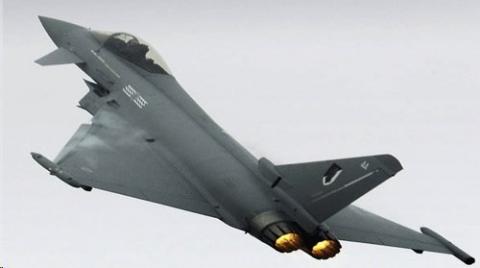India Spurns Britain on Jet Deal

From New America Media and FirstPost.com:
The Brits are in a tizzy.
“What on earth do they know about cricket and curries?” sniffed Tory MP Peter Bone when he heard France’s Dassault had emerged as the lowest bid for India’s $10 billion jet fighter contract.
Well, wake up and smell the curry, MP Bone. Curry is your national dish. India is sampling the world, looking for the best bargain on offer. There’s no time for sentimentality in a dog-eat-dog world. Old loyalties count for little. While the stuffy brown sahib clubs in Calcutta might still hold onto starchy British-era dress rules, the rest of the country is in a tearing hurry to be top dog. There’s no time to lose. China is already testing its fifth-generation stealth fighter, the Chengdu J-20.
The Brits, as Tristram Hunt points out in The Guardian still think they have an “in” because they laid the railways, nurtured the bureaucracy, even designed the parliament. And this is the thanks they get. Not even a lousy airplane contract.
India does have a law on its books that requires children to take care of their parents. Could that be invoked here to help Mother England out? What’s particularly galling of course is that India learned to put self above others from the British Raj.
During the 1929 Great Depression, London happily adopted trade policies that protected Britain and ruined India. Farmers had to sell off their gold and silver to repay debt. The Viceroy’s reaction? “For the first time in history, owing to the economic situation, Indians are disgorging gold,” wrote Lord Willingdon. “We have sent to London in the past two or three months, 25,000,000 sterling and I hope that process will continue.”
Now that the tables are turned, the Brits are apoplectic. “Britain can no longer justify sending aid to India,” trumpeted The Sun newspaper. “This superpower in the making is treating us like mugs.” It turns out that “the thankless child” does not even want the aid.
Back in August, Pranab Mukherjee had already told the Rajya Sabha last year that the aid was “peanuts” anyway. India, ever status conscious, doesn’t want the poverty sting attached to the 280 million pound handout from Britain’s Department for International Development. But it relented after it was told canceling the program would cause “grave political embarrassment” to Britain.
So that’s what is has come down to. India will take Her Majesty’s peanuts so Britain can still feel good about itself as it presides over its moth-eaten Commonwealth. But even that is a favor. So this trade for aid logic doesn’t work. India does not want the peanuts and it does not want the Typhoons.
In the fallout from the aircraft deal all kinds of theories have surfaced as to why the British bid crashlanded.
There’s the Gandhi theory. David Cameron paid the price because of his poor links with the Gandhis, according to the WintourAndWatt blog on the Guardian. “Power within India’s ruling Congress Party rests with the Gandhis,” writes Wintour and Watt. “(David Cameron) did not meet any Gandhis on his visit.” Most ironic, Rahul Gandhi left town shortly before Cameron landed. Guess where he went? London, of course.
There’s the Clarkson theory. Downing Street refused to censure Jeremy Clarkson’s notorious toilet humor laced pre-Christmas program even after the Indian High Commission complained. Add to that the bungling attempt to end the BBC’s Hindi programming and the new government’s immigration policies.
But all of that just buys into an old paradigm, that buying fighter jets is a comedy of manners, that it’s all about symbolism, the perception of slights and the parrying of snubs.
In the end, perhaps it is just about business and hard-headed strategy. As KP Nayar writes in The Telegraph, “there was a time when India’s rulers could solely be influenced by gimmicks. But the theatrics and atmospherics can no longer substitute hard policy options.” So while the Obama administration made much of his first state dinner being with Manmohan Singh, it was all “too much noise bereft of substance.” Lockheed Martin and Boeing were booted out of the competition for the IAF deal earlier in the race. The French, on the other hand, writes Nayar, approved the adaptation of Indian Air Force mirages in tandem with Israeli supplies of laser-guided bombs when India needed it the most – during the 1999 war in Kargil. That paid off. One defense analyst told the BBC “The Indian air force, which is well-equipped with French fighters, is favoring the French.”
Britain still has an allure in the Indian consciousness but it’s largely symbolic. The days when The Statesman in Calcutta reported about a Bengali society matron who jumped up shouting, “We won” at the end of the Falklands War are long over. This new India is much more unsentimental, especially when the bottom line is at stake. This is no more about any La Nouvelle Vague Francophilia than it is about Anglophobia. Responding to China’s developing air power means a lot more to Delhi than keeping the Queen happy on her diamond jubilee.
But never mind, Brits. Stiff upper lip, old boy. Look at the bright side. You can keep the chicken tikka masala. You’ll always have Jeremy Clarkson. And in some corner of the musty dining room of the Calcutta Club, it is forever England.






























































































































































































































































































































